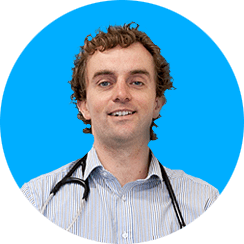Ed and Andy take you through everything you need to know for the Autumn Statement that Jeremy Hunt unveiled yesterday.
Submit one thing you’ve learned from the Medics’ Money Podcast HERE —> www.medicsmoney.co.uk/1million
Want to stay up to date with the latest financial information for doctors?
Subscribe on YouTube to never miss a new video: https://www.youtube.com/@MedicsMoney
Join 40,000 doctors receiving free financial CPD via email by downloading our free ebook here
https://www.medicsmoney.co.uk/ebook/
Follow us on Twitter
https://twitter.com/medicsmoney
Like us on Facebook
https://www.facebook.com/medicsmoney
Music credit: MetzMusic on YouTube.
On 22 November 2023 Chancellor Jeremy Hunt delivered his second Autumn Statement.
Clearly buoyed by the fall in inflation to 4.6%, a fall in borrowing estimates and an increased
forecast for growth for this year (if not for the future) to 0.6 %, the Chancellor announced a
number of changes in what he has called his “Autumn Statement for growth”.
There were a number of announcements made, either in the House of Commons or in the
accompanying documents published online (including 110 measures affecting businesses)
but perhaps not a huge number that will affect healthcare professionals. In this blog Ed goes
through the key relevant changes announced by the Chancellor, and their impact, and
considers what hasn’t changed.
National Insurance Changes
The main headline-grabbing changes relate to National Insurance Contributions (NIC)
For employees, including hospital doctors and salaried GPs, the 12% National
Insurance Contribution Rate, which affects salaries between £12,570 to £50,270, will
be decreased from 12% to 10% from 6 January 2024. For employees earning more
than £50,270 this will equate to a saving of £754.
For the self-employed, including GP Partners, the 9% Class 4 National Insurance
Contribution Rate, which affects taxable profits between £12,570 to £50,270 will be
decreased to 8% from 6 April 2024.
For the self-employed, as well as the above, Class 2 National Insurance
Contributions, which equate to £3.45 per week, have been abolished. Overall, for
the self-employed, the cut in Class 4 NIC and abolishment of Class 2 NIC should lead
to a saving of £556 for those earning more than £50,270.
Minimum Wage Changes
Another significant highlight of the Autumn Statement was the increase in minimum wage.
From next year, the hourly rate will rise to £11.44, resulting in a 9.8% increase. This
substantial jump in minimum wage reflects an effort to bridge the gap between wage levels
and inflation. However, note that it also presents challenges for NHS employers and GP
practices as no additional funding was allocated to support the increase.
Changes to MED3s:
One for doctors to watch out for down the line relates to MED3s and being signed off work.
The Chancellor said: “we will reform the Fit Note process so that treatment rather than time
off work becomes the default”. We don’t have many details on this and it looks like the
Government intends to consult on what changes should be made in 2024 but this will of
course affect both patients and doctors when the changes are made.
Other changes
The Government have made permanent the “full expensing” regime which allows
companies to deduct the full cost of qualifying investment in plant and machinery
(including computers, desks and office equipment but not cars) against their profits.
The Chancellor called this the “largest business tax cut in modern British history”. This is unlikely to affect many doctors but may be useful for those who own their
own companies doing private work.
There were also some changes that will affect a lot of our patients:
o the state patient will increase by 8.5% in April 2024
o benefits will increase by 6.7% in April 2024
o there is talk of introducing a legal right for workers to have a single pension
pot for life which is interesting though won’t impact directly on healthcare
workers in the NHS pension.
What hasn’t changed?
Despite some positive changes, there were many things that were not changed. Top
amongst these were the income tax rates and, moreover, the income tax thresholds. The
personal allowance remains frozen at £12,570 until April 2028 and likewise the threshold at
which individuals pay the higher rate and the additional higher rate remain frozen. This
means that “fiscal drag” is causing more and more of us to start paying income tax or pay
higher rates of income tax. Looking at the Government’s data, the tax burden is still due to
rise higher than at any point since the Second World War despite the NIC cuts. The levels of
income at which Child Benefit (£50,000) and the Personal Allowance (£100,000) start to be
withdrawn remain the same as does the level at which tax-free childcare is removed
(£100,000) – understanding your marginal rate remains important.
They also left other taxes alone – despite reports of a cut to Inheritance Tax or even it being
abolished, it was not changed at all and neither were Capital Gains Tax, stamp duty land tax.
Corporation Tax or VAT.
All the Individual Savings Accounts remain untouched as well so ISAs, Junior ISAs and
Lifetime ISAs remain unchanged.
Summary
In conclusion, the Autumn Statement 2023 provided some positive news for employees and
businesses but some challenges for employers. While the reductions in national insurance
and the increase in minimum wage were welcomed, the continued freeze of income tax
bands means fiscal drag continues and the tax burden is still increasing. It remains as
important as ever to stay informed about the taxes you pay and your marginal rate of
taxation.








